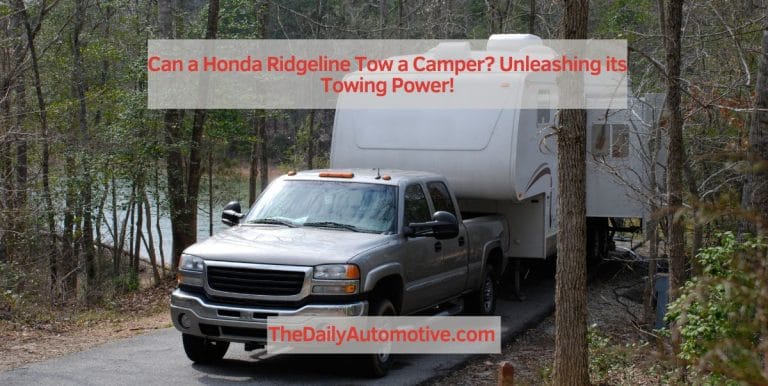Honda Accord Won’t Start: Quick Troubleshooting Tips
If your Honda Accord won’t start, check the battery, alternator, and starter. Addressing these components usually resolves the issue.
The frustration of a car that won’t start can be overwhelming, especially if you’re in a hurry. The Honda Accord, known for its reliability, can occasionally face starting issues. Understanding the common causes is crucial to diagnosing the problem quickly.
Several factors could be at play, from a dead battery to a faulty starter. Other possibilities include issues with the ignition system or fuel delivery. By identifying the symptoms, you can better determine the necessary steps for resolution. This guide will help you troubleshoot the situation effectively, ensuring you get back on the road with minimal hassle.
Initial Checks For A Non-starting Honda Accord
Start with a battery inspection. Check for corrosion on battery terminals. Ensure connections are tight and secure. A weak battery can lead to starting issues. Test the battery voltage. It should be around 12.6 volts for a fully charged battery.
Next, evaluate the starter system. Listen for a clicking sound when turning the key. This may indicate a faulty starter. Check the starter relay and fuses. A bad relay can prevent the starter from receiving power. Ensure the ignition switch functions correctly.
When Your Honda Accord Cranks But Won’t Start
If your Honda Accord cranks but won’t start, fuel system issues may be the cause. Start by checking the fuel pump. Listen for it when turning the key. Next, inspect the fuel filter for clogs. A dirty filter can block fuel flow.
Check the fuel injectors as well. They should spray fuel correctly. If they are clogged, cleaning may be necessary. Ensure there are no leaks in the fuel lines. Leaks can cause fuel loss and starting problems.
For the ignition system, verify the spark plugs. Worn-out plugs can fail to ignite the fuel. Inspect the ignition coil too. A faulty coil won’t provide the necessary spark. Lastly, check the fuses related to the ignition system.
Solving The Clicking Noise Mystery
Hearing a clicking noise when trying to start your Honda Accord can be frustrating. This often indicates an issue with the starter or starter relay. A single loud click points to these components needing attention. Checking the starter relay is essential. If it fails, the starter won’t engage properly.
Another quick solution is a jumpstart. This may temporarily get your vehicle running again. Ensure the jumper cables are connected correctly. If your car starts, the problem likely lies with the battery or the starter. Regular checks on these components can prevent future issues.
| Possible Issues | Symptoms |
|---|---|
| Dead Battery | Clicking sound, no lights |
| Faulty Starter | Single click, no engine turn |
| Starter Relay Problem | No response when starting |
No Power, No Start: What To Do
Check the battery cables for any signs of corrosion. Loose or dirty connections can prevent power from reaching your vehicle. Clean the terminals and ensure they are tightly connected.
Examine the ground connection as well. A poor ground can cause starting issues. Make sure the ground cable is securely fastened to the battery and the chassis.
Next, perform an alternator health check. A faulty alternator can lead to a dead battery. Test the alternator output with a multimeter. It should be between 13.7 to 14.7 volts when the engine runs.
If the readings are low, consider replacing the alternator. This simple check can save time and help avoid further issues.
Push Button Start Issues
Many Honda Accord owners face push button start issues. A common cause is a dead fob battery. Replacing the battery can fix the problem quickly. Open the fob and swap the old battery with a new one. Make sure to check the battery type before replacing it.
Another issue might be the switch or system. The push button start switch can wear out over time. If pressing the button doesn’t work, the switch may need diagnosis. A professional can test the switch and wiring for faults.
| Issue | Solution |
|---|---|
| Dead Fob Battery | Replace with a new battery |
| Faulty Switch | Get a professional diagnosis |
After A Battery Replacement: Next Steps
After replacing the battery, it’s crucial to reinitialize the system. This ensures that all electronic components function properly. Start by turning the key to the ON position for a few seconds without starting the engine. This helps reset the engine control unit (ECU).
Next, check for any loose connections. Inspect the battery terminals for tightness and any signs of corrosion. Clean any corrosion using a mixture of baking soda and water. Ensure that all wires are securely attached to the battery and starter.
Lastly, confirm that the fob battery is working if your Accord has a push button start. A dead fob battery can prevent the car from starting. Replacing it is an easy fix that can save you time and frustration.
Running Out Of Gas: A Simple Fix?
Running out of gas can be a simple issue. If the fuel pump is not primed, it may cause starting problems. A quick check can save time and money.
The fuel pump priming technique is easy. Turn the key to the “on” position without starting the engine. Listen for a soft whirring sound. This indicates the fuel pump is working. If you don’t hear it, check the fuse or relay.
Checking for fuel delivery problems is essential. Here are steps to follow:
- Ensure there is fuel in the tank.
- Inspect the fuel lines for leaks.
- Test the fuel filter for clogs.
- Check the fuel injectors for proper function.
These steps help diagnose issues with the Honda Accord not starting. Quick action can prevent further complications.
Advanced Troubleshooting
Diagnosing a Honda Accord that won’t start involves using professional diagnostic tools. These tools can pinpoint issues within the electrical system. A multimeter helps check battery voltage and alternator output. An OBD-II scanner reads error codes from the vehicle’s computer. Understanding these codes is crucial for effective troubleshooting.
Inspecting the wiring harness and connectors can reveal faults. Look for corrosion or loose connections. Voltage drop testing is essential to ensure proper power delivery. Each of these methods provides valuable insights into the underlying problems.
Using these tools systematically increases the chances of identifying the real issue. A clear understanding of the electrical system is key to restoring your Honda Accord back to working condition.
Frequently Asked Questions
What To Do When The Honda Accord Won’t Start?
Check the battery for charge and corrosion. Inspect the starter and ignition system. Ensure the fuel system is functioning properly. Try jump-starting the vehicle. If issues persist, consult a mechanic for further diagnosis.
Why Is My Honda Turning Over But Not Starting?
Your Honda may turn over but not start due to several issues. Common causes include a dead battery, faulty alternator, bad starter, clogged fuel filter, or ignition system problems. Check these components to identify the underlying issue and ensure your vehicle runs smoothly again.
Why Is My Honda Accord Clicking But Not Starting?
A clicking noise in your Honda Accord often indicates a weak battery or a faulty starter. Check battery connections for corrosion. Jump-starting might help temporarily, but a starter replacement or repair is usually necessary for a permanent fix.
Why Is My Honda Car Not Turning On?
Your Honda may not turn on due to a dead battery, faulty starter, or alternator issues. Corroded connections or an empty fuel tank can also cause this problem. Check these components first to diagnose the issue effectively.
Conclusion
Troubleshooting a Honda Accord that won’t start can be frustrating. Identifying the root cause is essential for effective repairs. Whether it’s the battery, alternator, or ignition system, prompt diagnosis can save time and money. Always consult a professional if unsure.
Keeping your vehicle well-maintained can prevent future issues.






